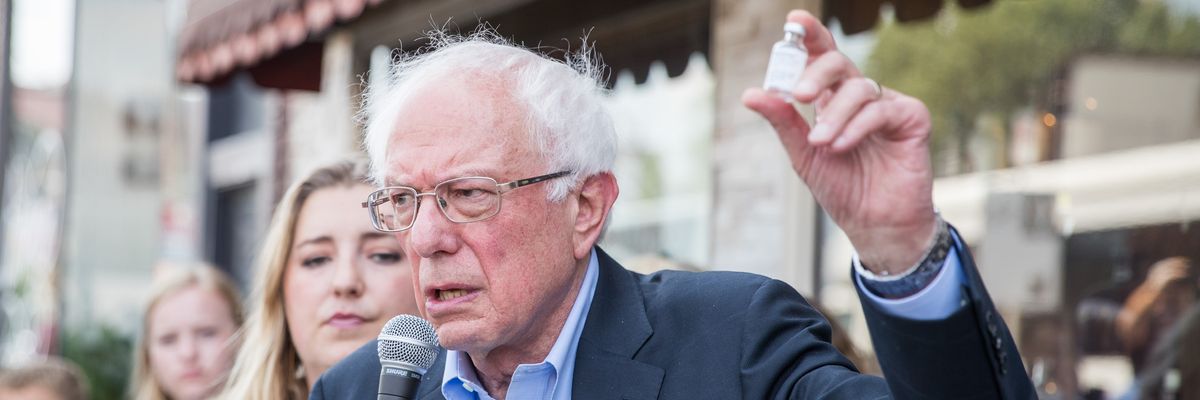The pharmaceutical lobby pledged Friday to do everything in its power to fight back after the Food and Drug Administration approved a Florida program that will allow the state to import medications from Canada at a steep discount relative to sky-high U.S. prices, which force millions of Americans to skip doses to save money.
"PhRMA is considering all options for preventing this policy from harming patients," Stephen Ubl, the industry trade group's CEO, said in a statement, condemning the FDA's decision as "reckless."
Prescription drug importation from Canada is a broadly popular approach that has long been advocated by Sen. Bernie Sanders (I-Vt.), who more than two decades ago led a caravan of women across the U.S.-Canada border to purchase breast cancer medication. Sanders, then a member of the House, spearheaded a legislative effort to approve more drug imports, but Republicans packed the final bill with loopholes for Big Pharma.
Sanders traveled across the Canadian border again in 2019 with Type 1 diabetes patients looking to buy insulin, which is dangerously pricey in the U.S.
Now, following the FDA's decision on Friday, Republican-led Florida is on track to become the first U.S. state to import cheaper prescription drugs from the country's northern neighbor. The RAND Corporation has estimated that Canadians pay less than half of what Americans pay for brand-name drugs.
The New York Times, which was first to report the FDA's approval, noted that Florida has estimated it "could save up to $150 million in its first year of the program, importing medicines that treat HIV, AIDS, diabetes, hepatitis C, and psychiatric conditions."
"With its approval in hand, Florida has more work to do," the Times added. "Before it can distribute Canadian drugs, the state must send the FDA details on those it plans to import. The state has to ensure that the drugs are potent and not counterfeit. It also must put FDA-approved labels on medications instead of those used in Canada."
At least eight other states—including Maine, Vermont, and Colorado—have implemented laws authorizing a drug importation program and are aiming for a green light from the FDA.
"The FDA is committed to working with states and Indian tribes that seek to develop successful section 804 importation proposals,” FDA Commissioner Robert Califf said in a statement Friday. "These proposals must demonstrate the programs would result in significant cost savings to consumers without adding risk of exposure to unsafe or ineffective drugs."
The powerful pharmaceutical industry, which has spent billions of dollars on lobbying over the past decade, is sure to fight tooth and nail to prevent the widespread adoption of importation programs—as it does with virtually every government effort to rein in drug costs.
David Mitchell, the founder of Patients for Affordable Drugs, wrote Friday that Florida's program "is a reflection of the fact that U.S. prices are too high and Americans need relief."
"But state-by-state importation from Canada isn't workable for all of us," argued Mitchell, a cancer patient who relies on drugs that cost hundreds of thousands of dollars a year. "We need federal solutions that lower prices for everyone."
